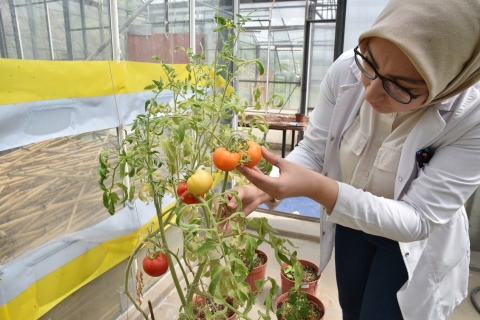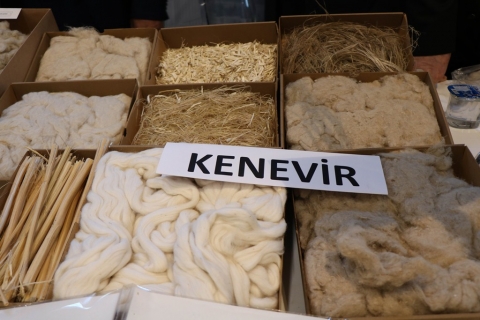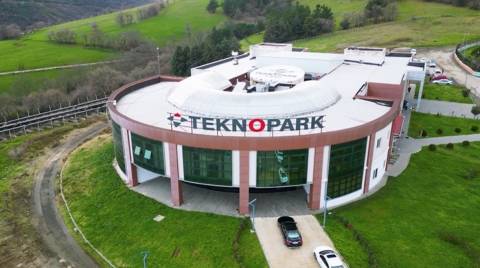Significant Weight Gain and Health Improvement in Lambs Through OMU's TÜBİTAK-Supported Pasture Project
Ondokuz Mayıs University (OMU), in collaboration with the Black Sea Agricultural Research Institute, introduced the TÜBİTAK 1001 project titled "Determination of Botanical and Phytochemical Diversity, Forage Yield, Soil Properties, Live Weight Increase, and Anthelmintic Effects in Artificial Pastures."
During a field day event held at the Black Sea Agricultural Research Institute's Çarşamba Experiment Station, the weight gains of lambs on four pastures planted with eight different plant varieties were presented to local farmers.
At the event, OMU Rector Prof. Dr. Yavuz Ünal emphasized that the project aims to help producers achieve more yield and profit from small areas, stating: "In the future, this will be seen as a priority area among supported projects. The soil demands this from us, and the increasing population makes it necessary. Food security is also important here. Producing more is essential, but ensuring that the food is healthy and that animals can be developed and raised healthily, thus offering these healthy products to society, is vital for our future. This project offers such an opportunity."
Provincial Director of Agriculture and Forestry İbrahim Sağlam highlighted that there are 250,000 small ruminants in Samsun, saying, "We need 1,240,000 tons of roughage annually. We have rehabilitated approximately 73,000 decares out of 162,000 in Samsun, and the work continues. The important point in these studies is how effective these mixtures will be on the live weight of small ruminants; we will see this when the study is completed. According to the research, we go up to a 6-plant mixture in areas where small ruminants are predominant. We can also include the mixtures here in those combinations."
Director of the Black Sea Agricultural Research Institute, Assoc. Prof. Dr. Bethül Bayraklı, emphasized that the project is an exemplary collaboration between the university, public, and private sectors, saying, "I believe that the data obtained from this study will make significant contributions to both farmers and sector stakeholders. Additionally, the project will raise awareness on food security, one of our recent issues."
Project leader Prof. Dr. İlknur Ayan from OMÜ's Faculty of Agriculture, Department of Field Crops, shared that the project started in 2022 and involved planting different plant species in varying proportions on the created pasture.
Prof. Dr. Ayan explained that they thoroughly established the pasture and planted Gelemen clover, red clover, white clover, birdsfoot trefoil, quackgrass, perennial ryegrass, plantain, and chicory in specific proportions on four different pastures, adding: "We tried to select plants found in natural pastures and specific to this region. We had two main goals here. One was to achieve live weight gain in lambs. While ensuring this weight gain, we also aimed to positively impact the lambs' health, as healthier lambs will perform better, resulting in more animal products."
Indicating that the project is in its second year, Prof. Dr. Ayan continued, "As a result of the research, the number of helminth parasites in the animals' intestines has decreased. In the project's first year, the daily weight gain in lambs was 95 grams. These plants are perennial, so they do not show their performance much in the first year. The first-year weight gain ranged from 95 grams to 118 grams. Although our experiment is not yet complete this year, we have observed a daily live weight gain of 200 to 220 grams in lambs. We will write up the results in the project's final year."
After the speeches, farmers were shown the planted plants and feeding options for the lambs on the four different pastures.



















